Freehold (732) 294-9393
Freehold (732) 294-9393
Foot pr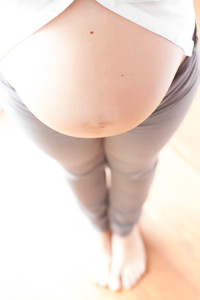 oblems during pregnancy are a generally common albeit potentially painful and uncomfortable occurrence. Both swollen legs and feet are common in late pregnancy. This swelling stems from too much fluid in the veins leaking into nearby tissue in the legs and feet. This swelling can lead to a throbbing and painful sensation. Ways to potentially avoid or mitigate this include raising your feet up whenever possible, staying active and exercising, not crossing your legs, and seeing a podiatrist who can monitor your feet. Don't be shocked if your feet swell and cause them to become too large for your shoes; if this occurs, find shoes that fit properly, support your feet, and are comfortable. Podiatrists are an excellent source of information if you have concerns about your feet while pregnant. They can provide individually suited medical advice and care for any foot-related problems stemming from pregnancy.
oblems during pregnancy are a generally common albeit potentially painful and uncomfortable occurrence. Both swollen legs and feet are common in late pregnancy. This swelling stems from too much fluid in the veins leaking into nearby tissue in the legs and feet. This swelling can lead to a throbbing and painful sensation. Ways to potentially avoid or mitigate this include raising your feet up whenever possible, staying active and exercising, not crossing your legs, and seeing a podiatrist who can monitor your feet. Don't be shocked if your feet swell and cause them to become too large for your shoes; if this occurs, find shoes that fit properly, support your feet, and are comfortable. Podiatrists are an excellent source of information if you have concerns about your feet while pregnant. They can provide individually suited medical advice and care for any foot-related problems stemming from pregnancy.
Pregnant women with swollen feet can be treated with a variety of different methods that are readily available. For more information about other cures for swollen feet during pregnancy, consult with Dr. Henry Miller from New Jersey. Our doctor will attend to all of your foot and ankle needs.
What Foot Problems Can Arise During Pregnancy?
One problem that can occur is overpronation, which occurs when the arch of the foot flattens and tends to roll inward. This can cause pain and discomfort in your heels while you’re walking or even just standing up, trying to support your baby.
Another problem is edema, or swelling in the extremities. This often affects the feet during pregnancy but tends to occur in the later stages.
How Can I Keep My Feet Healthy During Pregnancy?
If you have any questions please feel free to contact our office located in Freehold, NJ . We offer the newest diagnostic and treatment technologies for all your foot and ankle needs.
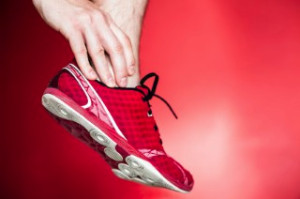 Running is a great way to stay healthy and fit, and an important aspect of running is proper footwear. Wearing the right type of footwear can help prevent injury and strain and provide a more enjoyable experience. If you are just starting out as a runner, don’t worry too much about buying expensive, high-end shoes. Instead, look for a pair that is medium-priced, provides comfort, and is roomy. When you wear a pair of shoes that do not provide a proper fit, you risk sustaining a number of injuries such as an ankle sprain or developing foot conditions such as corns, blisters, or plantar fasciitis. Furthermore, a bad pair of running shoes can make running uncomfortable and discourage you from doing it.
Running is a great way to stay healthy and fit, and an important aspect of running is proper footwear. Wearing the right type of footwear can help prevent injury and strain and provide a more enjoyable experience. If you are just starting out as a runner, don’t worry too much about buying expensive, high-end shoes. Instead, look for a pair that is medium-priced, provides comfort, and is roomy. When you wear a pair of shoes that do not provide a proper fit, you risk sustaining a number of injuries such as an ankle sprain or developing foot conditions such as corns, blisters, or plantar fasciitis. Furthermore, a bad pair of running shoes can make running uncomfortable and discourage you from doing it.
If you are a runner, wearing the right running shoe is essential. For more information, contact Dr. Henry Miller from New Jersey. Our doctor can provide the care you need to keep you pain-free and on your feet.
Choosing the Right Running Shoe for Your Foot Type
To increase performance and avoid the risk of injury, it is important to choose the right running shoe based on your foot type. The general design of running shoes revolves around pronation, which is how the ankle rolls from outside to inside when the foot strikes the ground.
If you have any questions please feel free to contact our office located in Freehold, NJ . We offer the newest diagnostic and treatment technologies for all your foot and ankle needs.
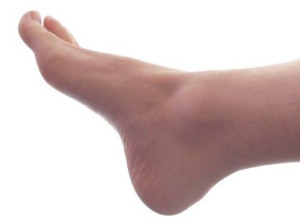 Wearing shoes without socks has caught on in recent years as a new fashion trend partly due to the rise in popularity of slip-on shoes. However, this new trend in shoe fashion may have a negative impact on your foot health. The foot routinely sweats throughout the day, and socks play a role in wicking away that moisture to help keep the foot dry. A number of shoes are not made out of breathable material which, coupled with a lack of socks, keeps moisture on the foot and can make you more susceptible to foot ailments like athlete’s foot or toenail fungus. Generally speaking, wearing socks with your shoes is a good idea. If, however, you still prefer to go sockless, be sure to let your shoes air out for 48 hours after wearing them, use antiperspirant, and wash your feet after wearing them.
Wearing shoes without socks has caught on in recent years as a new fashion trend partly due to the rise in popularity of slip-on shoes. However, this new trend in shoe fashion may have a negative impact on your foot health. The foot routinely sweats throughout the day, and socks play a role in wicking away that moisture to help keep the foot dry. A number of shoes are not made out of breathable material which, coupled with a lack of socks, keeps moisture on the foot and can make you more susceptible to foot ailments like athlete’s foot or toenail fungus. Generally speaking, wearing socks with your shoes is a good idea. If, however, you still prefer to go sockless, be sure to let your shoes air out for 48 hours after wearing them, use antiperspirant, and wash your feet after wearing them.
Everyday foot care is very important to prevent infection and other foot ailments. If you need your feet checked, contact Dr. Henry Miller from New Jersey. Our doctor can provide the care you need to keep you pain-free and on your feet.
Everyday Foot Care
Often, people take care of their bodies, face and hair more so than they do for their feet. But the feet are a very important aspect of our bodies, and one that we should pay more attention to. Without our feet, we would not be able to perform most daily tasks.
It is best to check your feet regularly to make sure there are no new bruises or cuts that you may not have noticed before. For dry feet, moisturizer can easily be a remedy and can be applied as often as necessary to the affected areas. Wearing shoes that fit well can also help you maintain good foot health, as well as making it easier to walk and do daily activities without the stress or pain of ill-fitting shoes, high heels, or even flip flops. Wearing clean socks with closed shoes is important to ensure that sweat and bacteria do not accumulate within the shoe. Clean socks help to prevent Athlete’s foot, fungi problems, bad odors, and can absorb sweat.
If you have any questions please feel free to contact our office located in Freehold, NJ . We offer the newest diagnostic and treatment technologies for all your foot and ankle needs.
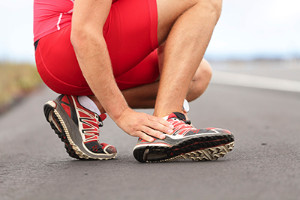 Working out and building strength is a good way to help prevent running injuries. Here are a couple of workouts you can try to help build muscle in your feet and legs. Do each of these exercises for and 4 to 5 sets of 15 to 25 repetitions . Before you do these however, it is recommended you see a podiatrist first and ask if exercising is right for you. To do a toe-curl walk, stand barefoot and move forward with your right leg using only your toes, then do the same for the left foot; you will only move an inch or so while doing this. Heel raises are easy to do. Just stand up on your toes while keeping your heels off the ground for about 1 second and then come down. Chair squats are a good way to work your quadriceps. Place a non-rolling chair behind you, and squat down over it so that your butt only briefly touches the chair. Then come up. Finally, to workout your gluteus muscles, lay on your stomach and bend your knee at a 90 degree angle. Slowly raise your thigh off the ground for a couple of seconds, then bring down your thigh and repeat with the other leg. These exercises are quick and easy to do and will build strength that will further help prevent running injuries.
Working out and building strength is a good way to help prevent running injuries. Here are a couple of workouts you can try to help build muscle in your feet and legs. Do each of these exercises for and 4 to 5 sets of 15 to 25 repetitions . Before you do these however, it is recommended you see a podiatrist first and ask if exercising is right for you. To do a toe-curl walk, stand barefoot and move forward with your right leg using only your toes, then do the same for the left foot; you will only move an inch or so while doing this. Heel raises are easy to do. Just stand up on your toes while keeping your heels off the ground for about 1 second and then come down. Chair squats are a good way to work your quadriceps. Place a non-rolling chair behind you, and squat down over it so that your butt only briefly touches the chair. Then come up. Finally, to workout your gluteus muscles, lay on your stomach and bend your knee at a 90 degree angle. Slowly raise your thigh off the ground for a couple of seconds, then bring down your thigh and repeat with the other leg. These exercises are quick and easy to do and will build strength that will further help prevent running injuries.
Exercising your feet regularly with the proper foot wear is a great way to prevent injuries. If you have any concerns about your feet, contact Dr. Henry Miller of New Jersey. Our doctor will treat your foot and ankle needs.
How to Prevent Running Injuries
Many common running injuries are caused by overuse and overtraining. When the back of the kneecap starts wearing out and starts causing pain in your knee, this is commonly referred to as runner’s knee. Runner’s knee is a decrease in strength in your quadriceps and can occur if you’re not wearing properly fitted or supporting shoes. To prevent runner’s knee, focusing on hip strengthening is a good idea, as well as strengthening your quads to keep the kneecaps aligned.
What Are Some Causes of Running Injuries?
- One cause of a common running injury is called iliotibial band syndrome.
- Plantar fasciitis is also another common injury.
- Stress fractures can occur from overtraining, lack of calcium, or even your running style.
Best Ways to Prevent Running Injuries
- Wear footwear that fits properly and suits your running needs.
- Running shoes are the only protective gear that runners have to safeguard them from injury.
- Make a training schedule. Adding strengthening exercises as well as regular stretching can help keep you strong and limber and can lessen the possibility of injuries.
- Stretching keeps muscles limber; this will help you gain better flexibility.
If you have any questions please feel free to contact our office located in Freehold, NJ . We offer the newest diagnostic and treatment technologies for all your foot and ankle needs.
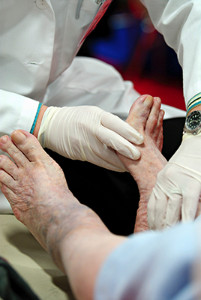 Falls and their effects on the elderly are, unfortunately, not reported on enough. This lack of reporting prevents overall awareness and the spread of knowledge in how to prevent them. Fortunately this has been changing in the past several years, with 2008 marking the first year that Falls Prevention Awareness Day was held by the National Council on Aging (NCOA). Despite this, awareness of the issue has a long way to go. Here are some facts about falls and falls prevention. Those who are age 65 or older and who have been to the emergency department are unlikely to engage in falls-prevention programs once discharged. While it has been reported that regular strength and flexibility programs for the elderly help prevent falls, some practices like Tai Chi have been found to help as well. Finally, elderly persons who have a history of falls, have suffered from a previous fracture, and have a body mass index (BMI) of 20 kg/m² are more likely to suffer another fracture.
Falls and their effects on the elderly are, unfortunately, not reported on enough. This lack of reporting prevents overall awareness and the spread of knowledge in how to prevent them. Fortunately this has been changing in the past several years, with 2008 marking the first year that Falls Prevention Awareness Day was held by the National Council on Aging (NCOA). Despite this, awareness of the issue has a long way to go. Here are some facts about falls and falls prevention. Those who are age 65 or older and who have been to the emergency department are unlikely to engage in falls-prevention programs once discharged. While it has been reported that regular strength and flexibility programs for the elderly help prevent falls, some practices like Tai Chi have been found to help as well. Finally, elderly persons who have a history of falls, have suffered from a previous fracture, and have a body mass index (BMI) of 20 kg/m² are more likely to suffer another fracture.
Preventing falls among the elderly is very important. If you are older and have fallen or fear that you are prone to falling, consult with Dr. Henry Miller from New Jersey. Our doctor will assess your condition and provide you with quality advice and care.
Every 11 seconds, an elderly American is being treated in an emergency room for a fall related injury. Falls are the leading cause of head and hip injuries for those 65 and older. Due to decreases in strength, balance, senses, and lack of awareness, elderly persons are very susceptible to falling. Thankfully, there are a number of things older persons can do to prevent falls.
How to Prevent Falls
Some effective methods that older persons can do to prevent falls include:
Falling can be a traumatic and embarrassing experience for elderly persons; this can make them less willing to leave the house, and less willing to talk to someone about their fears of falling. Doing such things, however, will increase the likelihood of tripping or losing one’s balance. Knowing the causes of falling and how to prevent them is the best way to mitigate the risk of serious injury.
If you have any questions, please feel free to contact our office located in Freehold, NJ . We offer the newest diagnostic and treatment technologies for all your foot care needs.